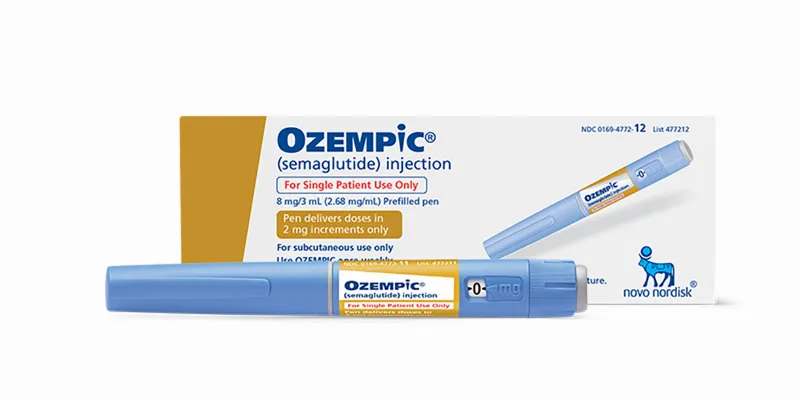Novel Study Suggests Wegovy May Reduce Alcohol Use Disorder Symptoms

28 November 2023
A new study published in the Journal of Clinical Psychiatry reveals that semaglutide, a drug used for diabetes and weight loss, significantly reduces Alcohol Use Disorder symptoms. The study showed a notable decrease in AUDIT scores among patients, opening new avenues for addiction treatment.
Researchers from the University of Oklahoma (OU) and Oklahoma State University (OSU) have discovered that semaglutide may play a significant role in reducing symptoms of Alcohol Use Disorder (AUD). This collaborative research presents the first human evidence suggesting that semaglutide could have broader implications in addiction medicine.
Semaglutide's Emerging Role in Treating AUD
The study, evaluated six patients undergoing semaglutide treatment for weight loss. Remarkably, all participants showed a substantial decrease in their Alcohol Use Disorders Identification Test (AUDIT) scores, a standard metric for assessing AUD.
"This research marks a significant step forward in our understanding of the potential therapeutic applications of semaglutide in the field of addiction medicine," said the lead author, Dr. Jesse Richards, director of Obesity Medicine at the OU-TU School of Community Medicine.
Beyond Weight Loss: A Potential Therapeutic Avenue
Semaglutide has recently made headlines as an FDA-approved drug for the treatment of diabetes (under the name Ozempic) and weight loss (as Wegovy). Semaglutide belongs to a class of medications known as glucagon-like peptide-1 receptor agonists (GLP-1RAs). These drugs have shown promise in preclinical studies for reducing addictive behaviors, including alcohol consumption.
Implications and Caution
While these initial findings are promising, the researchers stress the necessity of further investigation through larger, controlled studies. Until the results from future clinical trials are available, healthcare providers are advised to continue directing patients toward established behavioral treatments and FDA-approved medications for AUD.
This case series offers an exciting new perspective on the potential use of GLP-1RAs in addiction medicine. As researchers await the outcomes of more extensive trials, this research marks a pivotal moment in the exploration of innovative treatments for AUD, a condition that remains a major public health concern worldwide.
This case series offers an exciting new perspective on the potential use of GLP-1 receptor agonists in addiction medicine. As researchers await the outcomes of more extensive trials, this research marks a pivotal moment in the exploration of innovative treatments for AUD, a condition that continues to be a major public health concern worldwide.
Abstract of the research
Significant Decrease in Alcohol Use Disorder Symptoms Secondary to Semaglutide Therapy for Weight Loss: A Case Series
Abstract / Objective: Despite being a major cause of preventable death worldwide, alcohol use disorder (AUD) currently has only 3 FDA-approved pharmacotherapies. The glucagon-like peptide-1 receptor agonist (GLP-1RA) semaglutide has shown promise in preclinical studies for reducing alcohol consumption, but there are currently no randomized clinical trials that associate a decline in AUD symptoms with semaglutide use. This case series presents 6 patients with positive AUD screenings who were treated with semaglutide for weight loss. All subsequently exhibited significant improvement in AUD symptoms. Results: All 6 identified patients (100%) had significant reduction in AUD symptomatology based on AUDIT score improvement following treatment with semaglutide (mean decrease of 9.5 points, P < .001). Conclusions: This case series is consistent with preclinical data and suggests that GLP-1RAs have strong potential in the treatment of AUD. Additional randomized, placebo-controlled clinical studies are needed to fully assess the efficacy of semaglutide in treating AUD.








Comments
No Comments Yet!